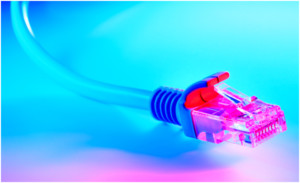 It’s already used to help doctors monitor their patients’ health at a distance, to check soil conditions in farming and to keep track of stock in supermarkets, but what could the Internet of things (IoT) do for your business? By embedding sensors in more and more things, we’re creating a world that’s much richer in data. We’re also making far more of our devices autonomous, cutting down on the amount of human input needed to complete routine tasks. This will have growing implications for business for many years to come, as the possibilities are really only just beginning to be explored – but what can the right IoT development company do for your business now to help you get ahead?
It’s already used to help doctors monitor their patients’ health at a distance, to check soil conditions in farming and to keep track of stock in supermarkets, but what could the Internet of things (IoT) do for your business? By embedding sensors in more and more things, we’re creating a world that’s much richer in data. We’re also making far more of our devices autonomous, cutting down on the amount of human input needed to complete routine tasks. This will have growing implications for business for many years to come, as the possibilities are really only just beginning to be explored – but what can the right IoT development company do for your business now to help you get ahead?
An office that looks after itself
Managing a busy office becomes a whole lot easier when you can train your machines, not just your staff. A smart assistant like Cortana or Alexa can oversee regular tasks like scheduling and coordinating staff, while individual pieces of equipment can let you know if they develop faults before it gets to the point where someone needs to use a machine urgently. Smart printers can ask for help when they need more paper or ink and even order more from your stationery supplier when overall stock is running low. A Roomba hoover or similar cleaner can help to keep the floors clean, cutting down on cleaning expenses and promoting a healthy environment. You can even get a smart coffee maker to identify staff habits to ensure there’s always a fresh brew ready at the right time.
A faster, more successful hiring process
For the meantime, humans are still a vital component of any business, but they’re no longer the best at identifying talent in each other. The artificial intelligence behind Censia – one of leading tech investor Joanna Riley’s creations – can help you find the ideal pool of candidates for any given role, even if you prefer to make the final decision yourself. It does this by scanning literally thousands of online résumés – something that would take days to do manually – and using its machine learning algorithms to identify bits of data that might not seem significant to you but that it has found correlate to what you’re looking for. Increasingly, this kind of big data profiling is also using IoT to identify things like the number of hours individuals spend at their desks.
An eco-friendlier production process
There are lots of ways in which IoT can help you to run your business in a more environmentally sustainable way, starting by monitoring each aspect of your production process to make sure that it runs as efficiently as possible. It makes it much easier to integrate power that you generate yourself through wind or solar devices. It can enable you to heat map your premises; the first step to working out how to distribute heat more efficiently so that it doesn’t interfere with your processes while ensuring your staff are comfortable. It can even manage your LED lighting so that it changes subtly over the course of the day, making sure that there’s always enough illumination no matter what the weather is doing and keeping employees at the optimum level of alertness.
Smarter, faster employees – even out of the office
What happens when your employees are out of the office on business trips or attending meetings? With better integrated communications than ever before, you’ll find it easy to keep track of them whenever you need to, even doing so passively so that, for instance, other people can work on the same documents as they do in real time. You’ll also find that they don’t spend as much time commuting because smart transport will mean that everybody gets around more efficiently.
Incoming and outgoing deliveries you can track en route
As well as managing your employees more efficiently when they’re out and about, you can monitor goods – whether they’re coming or going. Sensors in packaging monitor things like temperature, light and vibration to help you work out what’s happening to them, as well as enabling you to track them geographically. They can also let you know when somebody tries to open them. All of this makes it much easier to ensure that nothing gets stolen or damaged – and that if it does, you know who’s responsible. Collecting data like this over time also makes it possible for you to adapt your approach to transport in order to make sure goods get where they’re going in optimum condition.
With all these advantages already and many more developments on the way, the Internet of things is something that your business needs to get to grips with. It’s also something that you’ll need to keep watching in order to make sure you benefit from what’s still to come.


